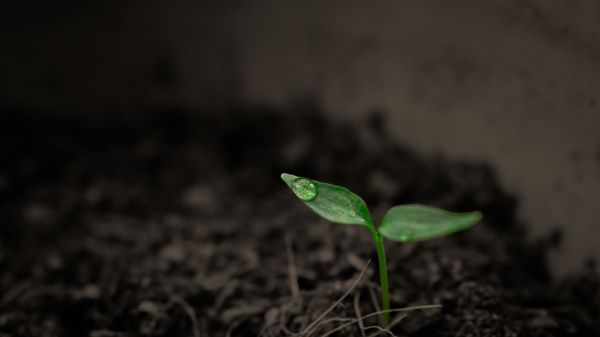An Environmental Educator’s Reflection: A Personal and Professional Journey

In the following blog, Joseph Sarvary, EE 30 Under 30 Class of 2018, reflects on the impact of this awards program, his career trajectory, and how his personal journey has shaped how he thinks about environmental education. Joseph hopes his insights and experiences will help young environmental educators emerging into or navigating the field. Learn more about EE 30 Under 30 here >
It’s been 5 years since I was selected as a 30-under-30 ‘Changemaker for the Planet’ by the NAAEE. I was 28 years old, and in my cohort was by far the eldest. It was an amazing experience to meet with the other changemakers and exchange ideas. They were young, passionate, and talented. It was an honor to stand next to them, and their accomplishments served as an inspiration for what I could do next. Little did I know what path the next 5 years of my life would take.
Since leaving the award ceremony, I have moved from Paraguay to France to London. I have left Para La Tierra, the organization that I had been working with, and Voces de la Naturaleza, the education program that had earned me the honor of the award. And, most importantly, I have become a father.
As I reflect on these series of changes, I must admit that at certain points of shifting away from my previous life, I felt I was betraying the award that NAAEE had given me - that I was turning my back on the project that others had felt made me an inspiring young leader. Now that I’m a bit less young, I feel certain that the decisions that I took were correct - not a betrayal of the award, but a pathway for me to realize more of my potential as a ‘Changemaker.’
I’ve pushed myself academically - I’ve completed an MBA and am more than halfway through a Masters of Biology. I’ve transitioned my career from NGO management in Latin America to corporate sustainability consulting in Europe - still focusing on climate action and environmentalism. I’ve also managed to maintain support for the environmental education program which I’d feared would drift away from me as I took on this next chapter of my life.
This is not to say that this transition has been an easy one. I experienced a real loss of identity when I resigned from ‘Deputy Director’ of Para La Tierra. But for all of the amazing young people who have and will continue to be recognized by the NAAEE, I’d like to encourage them to embrace the change that inevitably comes; evolving not only their projects, but themselves as well.
Remember: You are not your project and you can and should explore all the opportunities that life puts in front of you.
One of my key reflections on this period of transition in my life has come as a result of my new life in London - a life with far less access to nature than I was used to living on a nature reserve in Paraguay. I have made an effort to compensate for the lack of nature by taking my daughter outside and into nature as often as possible. These experiences, often taking place in urban city parks, have reminded me of a simple fact: I love nature.
I love nature. No need for further explanation. I don’t love nature for any reason other than the feeling I get when I am surrounded by it. Furthermore, my daughter loves nature. She can delight in the color and texture of a flower even if she doesn’t know the word ‘flower’ yet. As a community of environmental educators, I believe that this is something we often lose sight of.
Throughout the past five years, (driven in part by my Master’s course,) I have conducted research into the history of environmental education and the benefits that can come from time youth spend outdoors. These benefits are neurological, psychological, behavioral, physical, and social. It de-stresses us, makes us smarter, and increases our self-esteem.
The realm, therefore, of the environmental educator should continue to go beyond the purely ‘educational’. To capture the benefits we must adopt a broad approach - one that embraces that time outside is as personal as it is public. Being in nature connects us with our history, with our place, and with each other. In nature, when we pause and look inward, we see ourselves more clearly. In nature, when we pause and look outward, we see each other more clearly.
The world is changing. Environmentalism has gone from the margins to the very core of our social, political, and economic systems. The world is waking up to what is required to combat climate change. Carbon accounting will eventually be as mainstream as financial accounting. By my daughter’s 20th birthday, I hope that we will be approaching a truly net-zero economy.
But with all the momentum focused on addressing climate change through ‘adaptation and mitigation,’ I fear we will lose the forest for the trees. Nature is more than a handy carbon sink. We mustn’t ever forget what amazing things we can learn when we spend time among trees.
